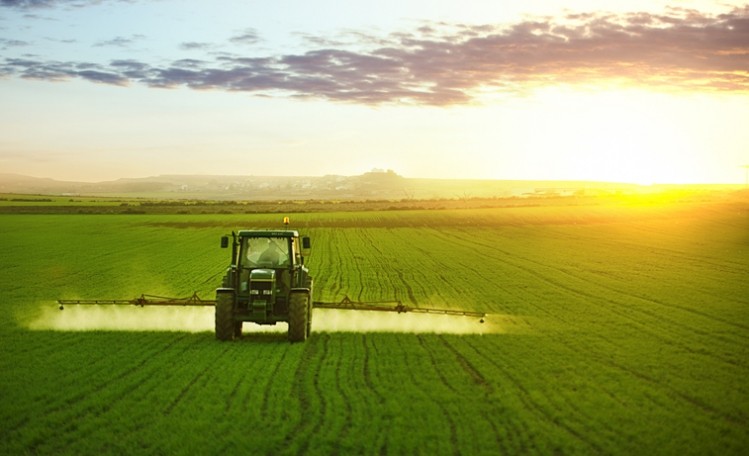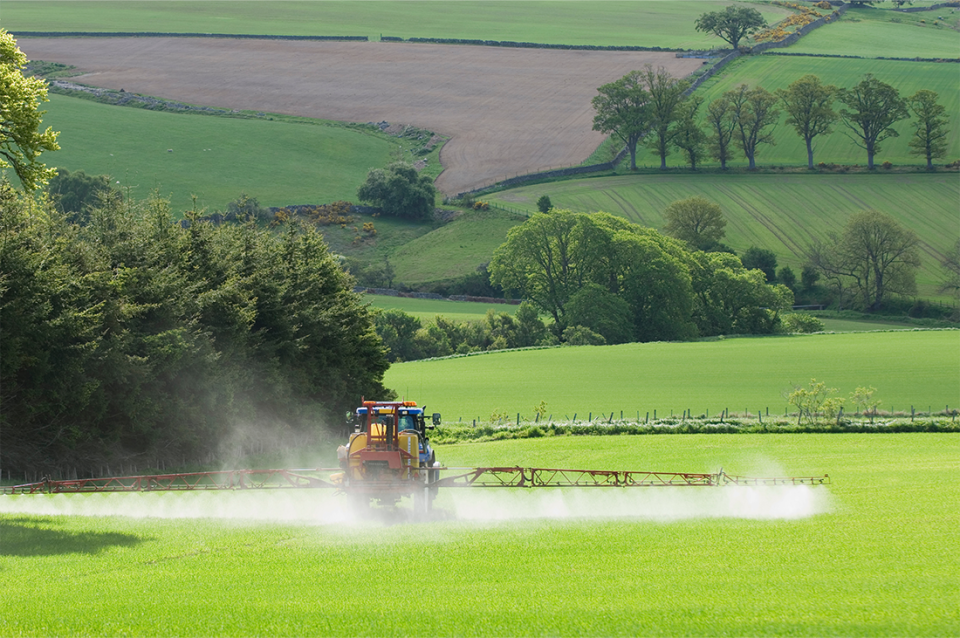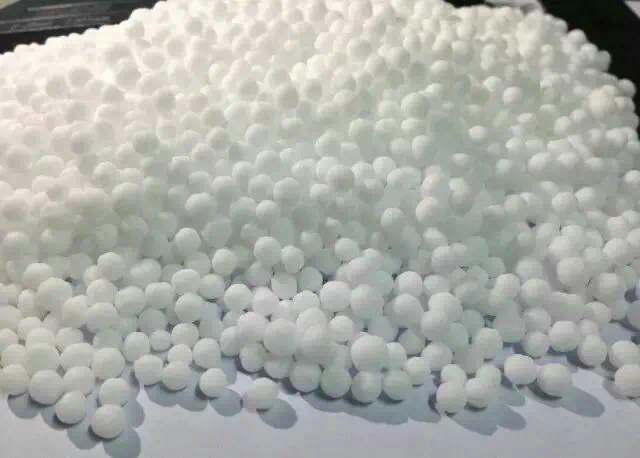Introduction
Sustainability of agriculture in pastured lands is important factor because it indicates pasture quality and supporting certain environmental aspects such as carbon sequestration, health of ruminant livestock and biodiversity conservancy. Improving pasture nutrition by using organic pasture fertilizer is an essential element to ensure good sustainability of pasture.
This organic pasture fertilizer encourages a healthier farming ecosystem not just below the ground but above it too, feeding plants and animals that graze on those pastures. Looking specifically at organic options helps to increase nutritional density of the pasture, while also supporting steers that produce better-tasting meat, with less reliance on chemical additions to the feed that promote faster growth without also polluting watersheds.
For example, Dr Sarah Watkins, head agronomist at Yara International, one of the world’s leading suppliers of mineral fertilizers, notes: ‘Introducing an organic pasture fertilizer into a normal agricultural routine not only improves the health of soils, it also lowers reliance on synthetics, all in the pursuit of UN Sustainable Development Goal environmental outcomes.
If you use them on pastures, there are a multitude of benefits: what are they, which are the most appropriate for pastures, and how and when should they be used? Here are our answers.
Benefits of Using Organic Fertilizer on Pastures
Using organic pasture fertilizer, from natural materials such as organic plant materials, animal manures and composted vegetation, also plays an essential role in enhancing soil health and improving pasture structure. This type of fertilizer contains nutrients required by the soil for total rejuvenation and helps improve the physical and biological soil properties such as texture, water holding capacity and biotic activity, which supports more resilient pasture ecosystems.
Soil health and structure: organic fertilizer improves soil organic matter, which is a key component of soil health and structure. Improved soil structure provides more pore space (proper aeration) and increases water infiltration and retention, which leads to significantly improved root development. When grass roots are thick and strong, they are better able to access deep sources of nutrients, as well as water, leading to more vigorous pastures. ‘Healthy soil makes for healthier plants and with organic pasture fertilizer you can grow pastures that have the ability to withstand drought, disease and pests,’ says Elaine Ingham, a soil biologist.
Nutrient Cycling and Water Retention: Organic fertilizers play a vital role in the soil nutrient cycling process. Slow release of plants nutrients such as nitrogen, phosphorus and potassium which is necessary for healthy plant growing over period of time will help plant to maintain its nutrients need. This kind of plant feeding process can reduce the risk of absorbing excess nutrients which may lead to nutrients leaching and run-off. Furthermore, the enhanced nature of soil improves its ability to capture and retain water and nutrients which yield significant results, especially in times of dry season.
Using organic pasture fertilizer also helps support microbial populations in the soil that break down organic matter, bringing nutrients more immediately available to plants and enhancing a vigorous nutrient cycling. This kind of biological activity is essential for maintaining productive pastures over time.
However, with the judicious use of organic fertilizers, pastures can be maintained not only more naturally, but also more successfully, thus adding up to healthier livestock and less of an environmental footprint. From a comprehensive perspective of sustainable agriculture, this amounts to finding the sweet spot of ecological equilibrium and longer-term stability.

Types of Organic Fertilizers Suitable for Pastures
If you’re contracting organic pasture fertilizer, you may pay a premium, but ensuring you use the right type will help maximise gains to animal health, soil health and pasture productivity. Organic fertilizers commonly used: Here we list some of the most commonly used organic fertilizers and their benefits for pasture management.
Compost: Compost is made from the decaying, or rotting, parts of plants, plant matter, leaves, straw and food waste. It is created from organic matter and is rich in nutrients. This can be applied to the soil to improve texture and moisture-holding capacity. It also assists in breaking down nutrients to provide smaller particle sizes to support nutrient availability for plants and encourages microorganism activity to provide enzymes for the breakdown of nutrients. It also encourages plant growth. It acts as a soil conditioner.
Animal Manure: One of the oldest ways to fertilise is with any kind of animal manure, from cows and horses to chickens and other animals. Manure can be an immense boon to soil health (especially in the case of ‘cowpats’ that contain the entire digestive ecosystem of the animal), is a very rich source of nitrogen, phosphorus and potassium, the most important nutrients for plant health, and will stimulate earthworm and soil-nutrient-microbe activity. On the other hand, it’s important to use well-composted manure and to avoid spreading it when it might wash into water sources because of its likelihood to harbour pathogens, or when it can burn plants with high levels of ammonia.
Plant-Based Options: Alfalfa meal, soybean meal and cottonseed meal make great fertilizers. They’re rich in nutrients and slowly release nutrients from the soil into the plants, aiding in plant health and longevity. They’re also incredibly tough on leaching and make for a very slow-releasing and steady feed option to supplement nutrients.
Advantages of Each Type:
- Using compost improves soil structure, liberates worms, feeds microbial life, and is generally safe and stable.
- Animal Manure has a high nutrient content, which can bring about a considerable increase in plant growth and soil fertility.
- Plant-Based Options are best utilised for targeted nutrient input, often applied to address particular corrective needs.
Each type will have a different set of benefits to contribute to the mosaic of your organically fertilised pasture, making some more suitable for certain pasture conditions or management goals. The introduction of organic fertilizer products follows a path similar to that of selecting cropland fertilizers, where the specific needs of the pasture – including the fertility of the soils and the type of forage plants present – and the characteristics of the location will inform which fertilizer source is most suitable.
However, with use in rotation of some forage-based organic fertilizer additives such as manure, fish emulsion, seaweed emulsion, peat moss and compost, many of these factors can be addressed to enhance the health and productivity of pastures in a truly sustainable manner. Organic fertilizer promotes the balance of the farm ecosystem and increases the biological value and quality of the productive pasture ecosystem as a whole.
Application Techniques for Organic Fertilizer in Pastures
The efficiency of organic pasture fertilizer is closely related to the application method. The right application can not only make full use of fertilizer but also protect the environment and achieve economic benefits. Therefore, this essay would like to briefly introduce several skills of applying organic fertilizer to pastures.
Firstly, we should spread fertilizer from west to east before the first rain, since spreading from west to east can speed up fertilizer quick absorption. Secondly, take advantage of the time when livestock or poultry are eating grain, because fertilizer can combine with grain more effectively and be broken down more quickly. Besides, it is important to do top leveling of the soil before sowing wheat, interact with cow manure and animal waste with the soil during sowing as well as plowing to save labor and make plasticization more perfect and deeper.
Best Practices for Effective Application:
- When to apply: Since organic fertilizers have that add-on effect, they are best applied during the growing season when the plants in the pasture are in good condition to uptake the nutrients. Thus, applying before the growing season in the early spring or after grazing during the growing season allows the animals to utilize the nutrients in the pasture to promote good, solid growth for the duration of the growing season.
- Application: Uniform application is an important aspect of a good regenerative pasture system, to prevent over-fertilization of some areas while under-fertilization of other areas. To promote even application, you can use spreaders for the applications of granulated organic fertilizers, such as compost, or liquids such as fish emulsion or seaweed extracts sprayed onto soil.
- Incorporation: When applying fertilizers in solid form, such as compost or manure, it is beneficial to incorporate into the soil lightly (with tilling equipment for example) to enhance the contact between fertilizer and the soil microbes. However, limited disturbing of the soil is preferable for maintaining the structure of soil and reducing erosion.
Seasonal Considerations and Frequency of Application:
- Application in Spring: Supplies needed nutrients to boost early growth which had been used up over the winter. Supports strong root development in preparation of the pasture for the growing season.
- Fall Application: This is our lightest application of the year. It’s intended to help rebuild soil quality and bring pastures back to life after the summers. It isn’t designed to increase growth because no plant grows well in colder months.
- Frequency: It will vary depending on the type of compost or manure being used and the needs of the pasture. Most pastures can be fed bi-annually (in spring and fall) while intensive grazing systems may require more frequent applications to maintain high levels of nutrients in pastures.
With these techniques, farmers and pasture managers can have confidence that their use of organic pasture fertilizer will be productive and long-lasting, maintaining healthy pastures and ecological balance.

Challenges and Considerations
Organic pasture fertilizer has numerous advantages – but these can make it difficult to use effectively:
- Animals prone to ‘lameness’ in their feet or their legs require special care when given access to bracken.
- Cattle, sheep, and goats do not thrive on these types of range if there is too much weed growth.
Common Challenges Faced When Using Organic Fertilizers:
- Supply and Availability: Nevertheless, the availability of high-grade organic fertilizers, even in large amounts, often creates problems. A big part of the problem stems from supplies that are only available locally.
- Cost Considerations: More expensive in the short term, at least on the first application: the total cost is not just the fertilizers themselves but, possibly, more labor to apply, and more labor to mix them in.
- Time for Results: Organic fertilizers tend to release nutrients over longer periods of time than synthetic alternatives. This can be favorable to long-term soil health but may fall short of satisfying the needs for rapid nutrient uptake of fast-growing pasture plants during their intensive growth periods.
- Training and Education: Appropriate training and knowledge about the correct rates and methods of application of organic fertilizers is important to avoid plant growth problems associated with poor foil feeding and poor response, but also to avoid waste of mineral resources.
Strategies to Overcome These Challenges:
- Link with Local Suppliers: Making linkages with the suppliers of local organic material can help to get the required organic material in a steady way and negotiation of the price might become easy.
- Blended Multi-Source Fertilizers: The combination of different types of organic fertilizers helps to even out nutrient-release and create an overall nutrient profile that suits the diverse needs of pasture plants.
- Educational Workshops and Training: Investment in community-based learning programs that would provide farmers with detailed information and skills on sustainable pasture management are a promising pathway towards making better use of organic fertilizer.
- Ongoing Monitoring and Adjustment: Routine soil testing and pasture monitoring give farmers feedback in real-time about the health of their soil and the needs of their plants, enabling them to adjust fertilizer strategies accordingly in order to improve fertilizer efficiency.
They can take proactive steps that address these challenges in order to extract the most benefit from the use of on-farm organic pasture fertilizer while controlling for its downsides. In doing so, farmers and pasture managers will renew their reliance on the carbon-capturing sequestration powers of healthy pastures, contributing to a sustainable food supply.
Conclusion
In summary, fertilisation using organic pasture has the main added values. Fertilising organic way, farmers can increase pastures’ healthiness and performance as well as maintain their healthy ecosystem and contribute directly to environmental sustainability. Fertilizing with organic pasture leads to an improvement of soil structure, increase of available nutrients and the development of their ecosystem.
But the use of organic pasture fertilizer isn’t without its own issues as well. Producers cover their own supply needs for fertilizers through their operations, and availability, cost and specific management methods are additional challenges to be navigated. There are also considerations for education and application methods to obtain the best results for overall pasture health.
From that perspective, farmers and pasture managers are encouraged to become stewards of this sustainable recycling. They should do so not only because they need the immediate benefits of nutrients for the health of their pastures, but also because it’s a long-term investment in the future health of their land. Using organic fertilizers and application methods that have been thoughtfully conceived and informed can enhance pasture heath and productivity, leading to a more sustainable agriculture.
Here are three references discussing the use of organic pasture fertilizers:
- Bio-solids as Organic Fertilizer for Pastures: This source discusses the use of bio-solids, which have been used as organic fertilizers for centuries. Bio-solids are graded in categories such as AA and B, with AA being the safest due to having the lowest metals and pathogens. Research from the University of Florida has shown that bahia grass fertilized with bio-solids yielded significantly better than unfertilized plots, without negatively impacting water quality or increasing greenhouse gas emissions.
- Black Soldier Fly Frass as Fertilizer: Another study investigates the response of pasture grasses to organic fertilizer produced from Black Soldier Fly frass. The research highlights that this type of organic fertilizer can increase the shoot growth and chlorophyll content in various grass species, although its nitrogen may not be immediately available to plants. This makes it a promising alternative for low-input, organic pasture systems, though cost and availability may be limitations.
- Improving Pasture Soils with Organic Methods: This source emphasizes holistic methods to enhance soil health in pastures, such as using perennial pastures and good grazing management. Grazing itself can help increase soil nitrogen and carbon, with the action of grazing triggering root exudates that feed soil microorganisms and boost nutrient cycling. Diverse cover crops also play a role in building soil health by feeding soil life and improving water efficiency.







